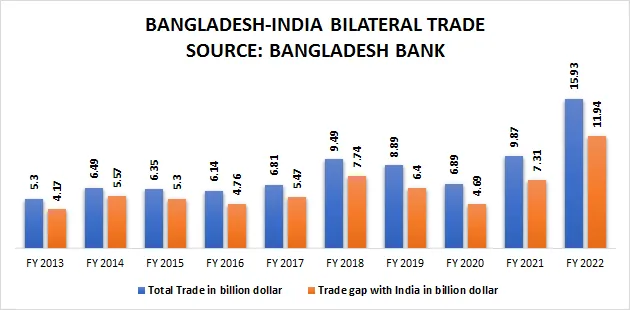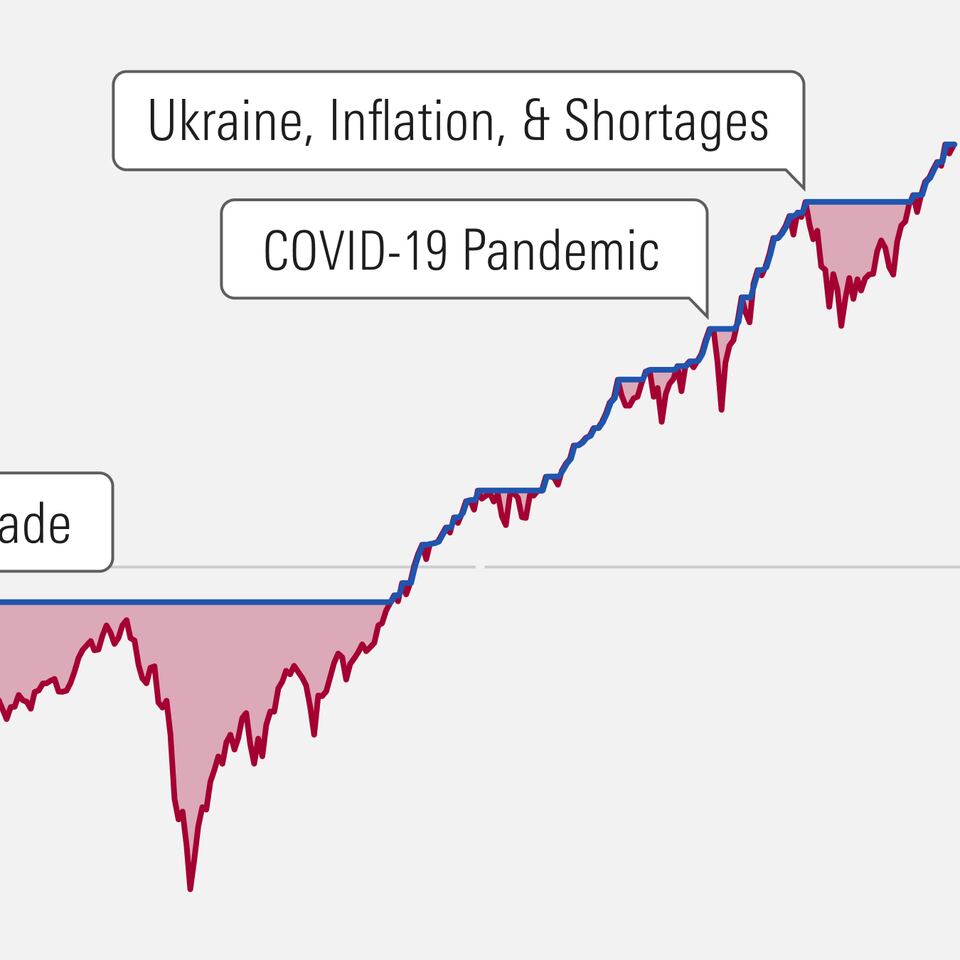India Restricts Imports From Bangladesh: Strained Relations Lead To Trade Tensions

Table of Contents
Reasons Behind India's Import Restrictions on Bangladesh
The imposition of import restrictions by India stems from a confluence of factors, including a growing trade deficit, concerns about protectionism, and anxieties regarding the competitiveness of Bangladeshi goods in the Indian market.
-
Growing Trade Deficit: India has experienced a steadily increasing trade deficit with Bangladesh in recent years. This imbalance has fueled concerns within India about the sustainability of this trade relationship and the impact on its domestic industries. The influx of cheaper Bangladeshi goods has put pressure on Indian manufacturers, leading to calls for protectionist measures.
-
Concerns about Unfair Competition: Indian industries, particularly in the textile and garment sectors, have voiced concerns about unfair competition from Bangladeshi counterparts. They argue that lower labor costs and less stringent regulations in Bangladesh give its producers a significant competitive advantage, undermining the Indian market.
-
Allegations of Increased Smuggling: The porous border between India and Bangladesh has facilitated the smuggling of goods, further exacerbating the trade imbalance and undermining efforts to regulate imports legitimately. This illicit trade undermines revenue collection and adds to the perception of unfair competition for Indian businesses.
-
Quality Control Issues: While not universally applicable, there have been instances of quality concerns associated with certain goods imported from Bangladesh. These concerns have been raised by some Indian consumers and businesses, leading to increased scrutiny and, consequently, restrictions.
-
Implementation of New Non-Tariff Barriers: Beyond tariffs, India has also implemented various non-tariff barriers, including stringent quality checks, lengthy customs procedures, and increased documentation requirements, making it more difficult for Bangladeshi goods to enter the Indian market. This tactic acts as a de facto restriction, even without explicit tariffs.
-
Political Motivations: It is impossible to rule out the influence of political factors in shaping India’s trade policies. Strained diplomatic relations or disagreements on other geopolitical issues may subtly affect trade decisions, leading to increased protectionist measures.
Impact of Import Restrictions on Bangladesh
The import restrictions imposed by India are expected to have a substantial negative impact on Bangladesh's economy. The ramifications extend beyond immediate export losses, affecting long-term economic stability and investment prospects.
-
Significant Decline in Bangladeshi Exports to India: India is a major export destination for Bangladesh, and these restrictions will lead to a significant decrease in export revenues. This will directly affect numerous businesses and industries heavily reliant on the Indian market.
-
Job Losses in Export-Oriented Industries: The decline in exports will inevitably lead to job losses, particularly in labor-intensive export-oriented industries such as textiles, ready-made garments (RMG), and agricultural products. This could exacerbate existing social and economic inequalities.
-
Slowdown in Foreign Direct Investment (FDI): Uncertainty created by the trade restrictions could deter foreign investors from committing to Bangladesh, hampering its economic growth and development goals. Investors may be hesitant to invest in industries vulnerable to sudden policy changes in a key export market.
-
Disruptions to Established Supply Chains: The restrictions disrupt well-established supply chains between the two countries. Businesses relying on a seamless flow of goods and services will face significant challenges, potentially leading to increased costs and production delays.
-
Potential Increase in Prices of Affected Goods in the Indian Market: While intended to protect domestic industries, the restrictions may paradoxically lead to higher prices for consumers in the Indian market as the reduced supply of Bangladeshi goods could create shortages.
Implications for Regional Trade and Geopolitics
The trade tensions between India and Bangladesh have significant implications for regional trade cooperation and broader geopolitical stability in South Asia.
-
Negative Impact on Regional Trade Agreements: The dispute casts a shadow over regional trade cooperation initiatives like the South Asian Association for Regional Cooperation (SAARC), demonstrating the fragility of such agreements in the face of bilateral disputes.
-
Increased Geopolitical Tensions: The worsening relationship between two major South Asian powers increases geopolitical tensions within the region. This could hinder collaborative efforts on issues of mutual concern, such as security and development.
-
Potential for Escalation: If not addressed promptly, the current trade dispute could escalate, leading to further restrictions and retaliatory measures from both sides. This could damage the long-term economic and diplomatic relationship.
-
Need for Diplomatic Engagement: Constructive dialogue and diplomatic engagement are crucial to resolving the trade conflict and averting further escalation. Open communication and a willingness to find mutually acceptable solutions are essential.
-
Repercussions for Other Countries: The trade dispute between India and Bangladesh could have repercussions for other countries that trade with either nation. Supply chain disruptions and price fluctuations could affect businesses globally.
Potential Solutions and Future Outlook
Addressing the trade tensions requires a multi-pronged approach that prioritizes dialogue, negotiation, and a commitment to resolving differences through collaborative efforts.
-
Bilateral Trade Negotiations: Initiating formal bilateral trade negotiations can provide a platform for both countries to address their concerns, negotiate fair trade practices, and find mutually acceptable solutions.
-
Fairer Tariff Structures: Reviewing and adjusting tariff structures can help address the trade imbalances and promote fairer competition. This might involve gradual tariff reductions or the implementation of more equitable trade policies.
-
Dispute Resolution Mechanisms: Establishing or strengthening existing dispute resolution mechanisms can provide a framework for resolving disagreements and preventing further escalation.
-
Exploring a Comprehensive Free Trade Agreement (FTA): A comprehensive FTA could offer a framework for long-term trade cooperation, fostering greater economic integration and mutual benefits. This would require a significant commitment from both governments to overcome existing challenges.
-
Strengthening Regional Cooperation: Strengthening regional cooperation initiatives can help create a more stable and predictable trade environment, encouraging mutual trust and collaboration.
Conclusion
India's restrictions on imports from Bangladesh represent a significant challenge to the economic and diplomatic relationship between the two nations. The reasons for these restrictions are multifaceted, encompassing trade imbalances, concerns about domestic competitiveness, and potential political factors. The impact on Bangladesh’s economy is substantial, with potential for widespread job losses and economic slowdown. This situation highlights the fragility of regional trade cooperation and the urgent need for diplomatic engagement to find a lasting solution. The potential for wider geopolitical ramifications necessitates swift and effective action. Understanding the nuances of this escalating situation is crucial. Stay informed about the developments surrounding India's import restrictions on Bangladesh and their far-reaching consequences for regional stability and economic growth. Follow our updates for further analysis and insights into this evolving trade dispute.

Featured Posts
-
 Sea World Orlando Explore The Arctic With Expedition Odyssey
May 19, 2025
Sea World Orlando Explore The Arctic With Expedition Odyssey
May 19, 2025 -
 Cannes 2025 Emotional Response To Kristen Stewarts The Chronology Of Water
May 19, 2025
Cannes 2025 Emotional Response To Kristen Stewarts The Chronology Of Water
May 19, 2025 -
 Prix Des Maisons En France Carte Interactive Et Donnees Notariales
May 19, 2025
Prix Des Maisons En France Carte Interactive Et Donnees Notariales
May 19, 2025 -
 Bardellas Candidacy A New Era For The French National Rally
May 19, 2025
Bardellas Candidacy A New Era For The French National Rally
May 19, 2025 -
 Wednesday Afternoon Cardinal News And Notes Your Daily Update
May 19, 2025
Wednesday Afternoon Cardinal News And Notes Your Daily Update
May 19, 2025
